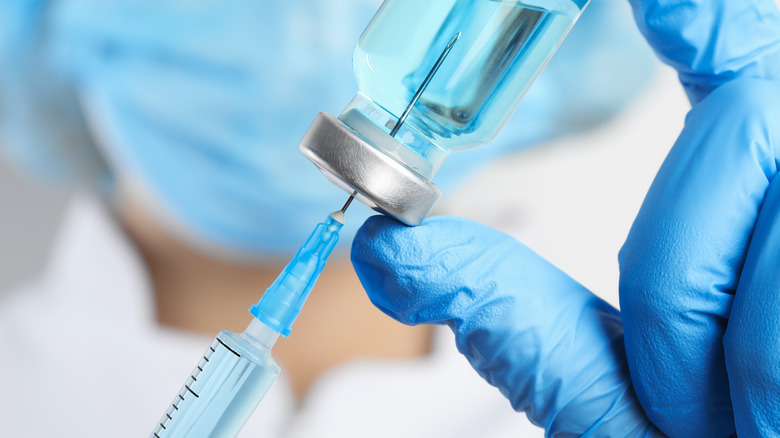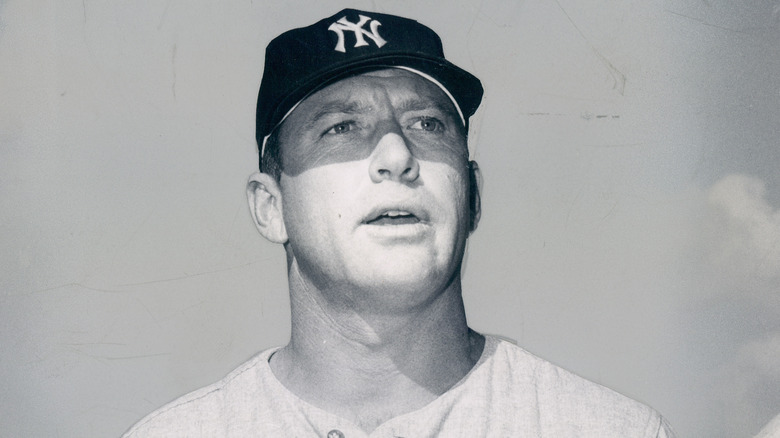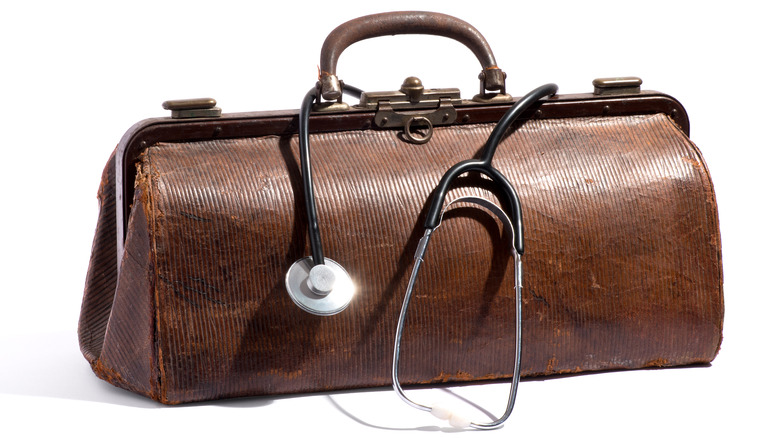How The Real Dr. Feelgood Prevented Possible Baseball History
For doctors, presumably, their first priority is the health and safety of their patients. After all, a physician is supposed to make their patients better, not sicker. The reality, however, can be messier. Whether through inattention, fraud, taking shortcuts, or being downright homicidal, there have been more than enough doctors throughout history who have harmed — or even killed — their patients.
Max Jacobson was just such a doctor. During the 1960s and early 1970s, his practice mainly centered on "treating" the high profile celebrities, per The New York Times — except his treatments primarily consisted of doling out amphetamines. Indeed, his tendency to give patients drugs earned him the nickname "Dr. Feelgood." And when he wasn't shooting addictive chemicals into his patients' bloodstreams, he was looking the other way at proper standards and procedures. One of his patients, in particular, was so physically hindered by Jacobson's devil-may-care approach that it possibly changed the course of baseball history.
Mickey Mantle's chance at baseball history forever changed
Back in 1961, baseball history was still in the making with Babe Ruth's 1920 single-season home run record in danger of being broken. While New York Yankees player Roger Maris wound up breaking the record on the last day of that season, per Baseball Almanac, Maris' teammate Mickey Mantle was also closing in on Ruth's legacy.
Unfortunately for the man who would become one of baseball's biggest legends, Mantle was sidelined by ill health as the summer and season wound down. According to the 2011 Mantle biography "The Last Boy," by author Jane Leavy, Yankees broadcaster Mel Allen suggested that Mantle go see Dr. Max Jacobson, who would "fix him right up" (via Grantland). Instead, Jacobson injected a syringe so deep into Mantle's buttocks that he struck bone. The incident resulted in an abscess at the injection site, and the wound not only derailed Mantle's season and his chance at the home run record — it threatened his career.
As for why no one connected the dots between Mantle's "treatment" at the hands of Jacobson and his subsequent illness? Mantle was known for his hard-partying ways, per "The Last Boy," and everyone who knew him purportedly chalked it up to his abuse of alcohol and unhealthy lifestyle. He did, however, eventually get better, and played several more seasons – but his chance at tying or beating Ruth's record came and went.
What happened to Max Jacobson, the real Dr. Feelgood?
Mickey Mantle was not the first person (or the last) to be adversely, dangerously affected by physician Max Jacobson's haphazard approach to medicine. Nor was he even the most high-profile patient of the aptly nicknamed "Dr. Feelgood" — that honor that would go to John F. Kennedy. By the 1970s, state regulators had taken notice that Jacobson was purchasing "substantial" qualities of amphetamines, and not providing a good explanation for where they went, as The New York Times reported at the time. Meanwhile, patients were complaining of addiction, withdrawal symptoms — even ruined lives — from Jacobson's willy-nilly distribution of drugs.
In 1972, Jacobson was charged with 48 counts of unprofessional conduct, and a couple of years later, his license to practice medicine was revoked, per The New York Sun. He appealed, and in 1979, Jacobson, now approaching his 80s, was deemed unfit for continued medical practice, and his appeal was denied, putting the final nail in the coffin of his medical career. He died a few months later, according to New York Magazine.


